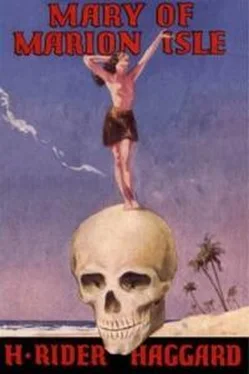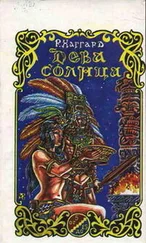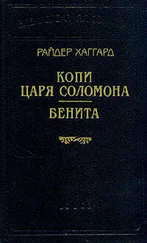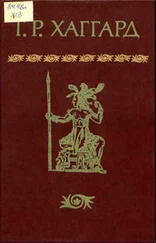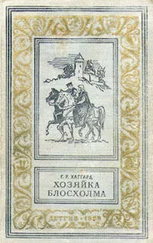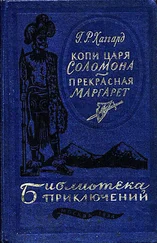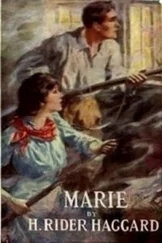"Then why in Heaven's name didn't you answer when you knew I was so frightened about you?"
"Because Andrew wicked murderer, like Cain, and Mary no want to speak to him. Andrew frighten poor goat much worse than Mary frighten Andrew, and p'raps he want kill Mary next."
Now the unfortunate Andrew became almost inarticulate with indignation. He argued, he explained, he demonstrated that there was no difference between killing a kid and killing fish. At this point Mary intervened:
"The Lord He catch fish and eat them too; He no shoot goat. Mary not like murderers and come sit here with Old Tom."
"Damn Old Tom," said Andrew. "I understand that he killed seals."
"He did not shoot them," said Mary.
Before such argument as this Andrew collapsed. Then suddenly he became aware of the overmastering beauty of this woman seated there upright and still upon that stone by the silent pool, with the moonlight glinting on her hair and on her snowy arms and breast, and filling with mystery her big blue eyes from which the slow tears trickled. His anger left him, everything left him except this sense of beauty that had smitten him like a magic wand. In an instant she felt the change and looked at him with a dreamy smile.
"Andrew sorry," she said, "and commit no more murder?" As he made no answer, taking silence for consent, she went on, "Then Mary sorry too. Andrew come kiss Mary and make friend."
He tried to say No; he tried to go away, but he could not. On the contrary he came and kneeling down before her, kissed her uplifted cheek. Nor this time did he stop there, because he could not. Throwing his arms about her he drew her to his breast, he kissed her everywhere; hair and eyes and lips, he kissed them all. And she, catching his fire, kissed him back, then lay in his arms crooning happily.
"Mary forget all about goat now," she said at length, "and not angry any more. Time for Andrew come to supper."
So they went to supper, but of it Andrew could not eat much because of the flame that burned within him, though Mary seemed to be quite happy and for the while satisfied. Only her eyes looked larger than before and in them was a new light.
Saying that he was tired Andrew went to bed early and without any further demonstration of affection. When he reached his cave he lit his rude lamp and sat down to think. What was to be done? The position had become impossible, as in a dim way he had always foreseen that it must. He could not go on living with this lovely, loving creature on their present footing. Human nature has its breaking strain and this he had reached, or rather they both had reached it, although one of them did not know that it was so. Therefore he was face to face with an alternative. Either he must stay and take the natural consequences, to do which the temptation was almost overwhelming, or he must go. Now he knew well that were Mary in his sight he could never find the strength to leave her. Therefore if he went at all, it must be when she was absent, which meant immediately. Yet why should he go when there was so much against such a course? For one reason only—from a sense of duty.
Andrew was a man of upright and indeed rather puritanical mind, not one who would ever set out deliberately to gratify an impulse however human. If he did so it would be when his reason was overborne by the primary forces of nature—when he was no longer master of himself. Now, sitting alone, he knew that he loved Mary devotedly, and that there was nothing that he desired more, or indeed one–tenth so much in the whole world, as that they should belong to each other. What was there against it? Just this one thing—that he did not know whether his wife were alive or dead. If she were dead a marriage ceremony could be dispensed with, since under the circumstances it was impossible. But if she were alive, to say nothing of the consequences to himself, what would such a course make of this innocent Mary, who did not know what she was doing?
The risk seemed too great to take. Therefore he must face the alternative and go away. It would grieve Mary, of course, but that was better than bringing her to ruin. And he must go at once, before he saw her any more. He loved her so well that he must leave her.
In his cave Andrew had some of the slates which they manufactured, that he used to make notes upon and to keep a kind of diary. Taking one of these, with pain and grief he wrote the following letter:
"Dear, dear Mary,
"I must leave you for your own sake" (had he but known it this was the worst possible argument he could have used to her. If he had said that he must leave her for his own sake, the remark would have had more weight). "You do not understand what I mean and it is quite impossible for me to explain it to you. The only hint I can give to you is to remind you that perhaps I am still a married man. But the truth is that I have grown too fond of you and perhaps you have grown too fond of me, as may be natural since you have seen no other men. At any rate, we cannot go on living side by side as we have done for nearly a year and not be more to each other than we are. Even if you do not understand, you must accept what I say as the truth, since I say it for your sake. Do not seek for me. I shall be able to get on quite well alone, as I know you can, especially as you have plenty of everything you need. Therefore, unless you should fall really ill, do not seek for me. Indeed, it would be useless for you to do so for I am going to hide away. Best love and good–bye. Thanks, too, for all your goodness. God bless you, dearest Mary.
"Andrew."
When he had finished this epistle, of which on re–reading it he felt rather proud, Andrew collected a few articles almost at hazard, and left the cave with more pangs of regret than he had felt on departing from the finest home he had ever inhabited, or even from his lodgings in Justice Street to be married. Taking the cat Josky with him he crept to the mouth of Mary's cave. There he tied Josky to a stone, wishing to leave it to be a companion to Mary, and set the slate with the letter in a position where she could not fail to see it.
After this he fled away, like a fugitive running from justice, and by the bright moonlight soon gained the moor.
When Andrew had walked some little distance upon the moor, suddenly it occurred to him that he did not know whither he was going. In the urgency of his present predicament he had found no time to make plans for the future. All that he had realized was the necessity of immediate flight; therefore he, the sinner, had fled, pursued by the policeman, Love, upon whom as yet he could not gain a single yard.
Now the question arose—whither away? To which there seemed to be only one possible answer—the place whence he had come, namely, the hut.
So to the hut he made his path, arriving there extremely tired rather late on the following morning, since when the moon grew low he had lost his road among those terrible hills and marshes, and had moreover fallen into a bog that was concealed by a crust of snow. On the edge of this bog, wet through, chilled to the bone and without shelter from the bitter wind, he had been obliged to sit till dawn, after which, getting his bearings in the light, he slowly floundered onwards to the hut.
It proved to be a desolate abode enough, for by this time he had removed the most of its contents to the caves, and, worse still, all the matches. Moreover, in his agitation he had forgotten to bring any with him, so there he was fireless and with nothing to eat save some dry biscuits. He had his gun, indeed, and might have shot a seal or a goat, but if he did, he could not devour raw flesh, and the same applied for fish. Therefore all that day he lived upon biscuits, and not many of these, for his stomach turned against them. That night he developed a feverish chill. The chill came probably from his immersion and the fever from his state of mind; at any rate, there they were, and he had no medicine with him and could do nothing except try, without success, to keep himself warm.
Читать дальше
Конец ознакомительного отрывка
Купить книгу
